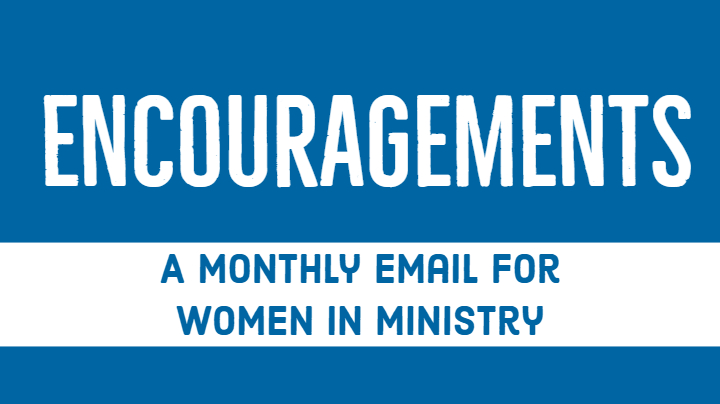The Center for Leadership Excellence, in partnership with COSROW, is pleased to lift up the voices of women in ministry encouraging fellow women in ministry. Please enjoy this month’s Encouragement from Monica Beacham, pastor of Cedar Grove UMC in Cedar Grove.
Anyone can sign up to receive Encouragement emails here.
Although you’re reading this in February, I am writing to you on what feels like the 53rd of January, when I should be working on my statistical tables. The past few weeks are a blur of trying to begin the administrative year and care for my congregation, while preaching and living amid the fears and uncertainties of our current political situation and flurry of executive orders from our new/old President. I’ve always identified with Jonah, but rarely have I identified more with the Jonah of Jonah, chapter 4:
Read Jonah 4:1-4 (NRSVUE):
But this [God not punishing Nineveh] was very displeasing to Jonah, and he became angry. He prayed to the LORD and said, “O LORD! Is not this what I said while I was still in my own country? That is why I fled to Tarshish at the beginning, for I knew that you are a gracious and merciful God, slow to anger, abounding in steadfast love, and relenting from punishment. And now, O LORD, please take my life from me, for it is better for me to die than to live.” And the LORD said, “Is it right for you to be angry?”
I’ve been lucky enough to sit in on a class lately with Dr. Kate Bowler, a short class about American religious history, especially as it influences our modern and misguided “everything happens for a reason” theology. In the class we’ve been talking a lot about Americans’ love for “mental magic,” our dogged belief that our mindset and attitude can change the outcome of our circumstances. In generations past, this might have been known as “the power of positive thinking,” as Norman Vincent Peale opined. Now Gen Z might call it “manifesting”— getting what you want by imagining it into being. As American Christians we tend to believe that in order to do anything, we first need the right mindset, and that our mindset can affect the outcome.
As women in ministry, this belief is especially pernicious. We are expected, perhaps more so than our male colleagues, not only to do our work but to do it with a smile on our faces. If we are having a hard time, and especially if we are angry, we are expected to disguise it. If we are discouraged, we may not admit it. We may even go so far as to feel guilty when we’re not feeling cheerful every day about our calling, because of the mistaken belief that our attitude will somehow change the outcome. And yet there is Jonah, who clearly didn’t have the right attitude about going to Nineveh, who tried to get out of going altogether, and who God worked through to save the Ninevites in spite of his bad attitude.
I’m not saying that a bad attitude is what we’re striving for, or that we should be like John Lithgow’s character “Rev. Dwight Henderson: World’s Meanest Methodist minister” from SNL. But maybe, just maybe, the outcomes of our work have more to do with the power of our redeeming God, and less to do with our attitude on any given day. I’m certainly counting on it.
How are you really doing right now? When have you had to work or endure in spite of tough emotions or situations? Do you put a lot of pressure on yourself or others to “stay positive?” When, like Jonah, has being honest about your feelings led to their transformation?
In partnership,
Center for Leadership Excellence and the Commission on the Status and Role of Women

